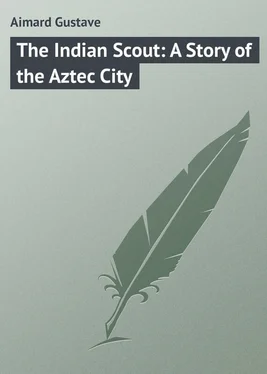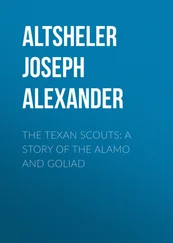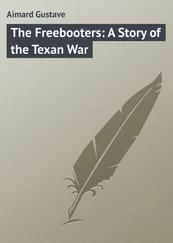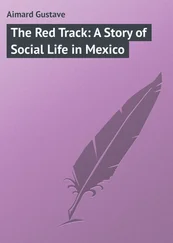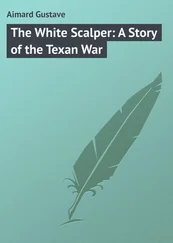Gustave Aimard - The Indian Scout - A Story of the Aztec City
Здесь есть возможность читать онлайн «Gustave Aimard - The Indian Scout - A Story of the Aztec City» — ознакомительный отрывок электронной книги совершенно бесплатно, а после прочтения отрывка купить полную версию. В некоторых случаях можно слушать аудио, скачать через торрент в формате fb2 и присутствует краткое содержание. Жанр: foreign_prose, на английском языке. Описание произведения, (предисловие) а так же отзывы посетителей доступны на портале библиотеки ЛибКат.
- Название:The Indian Scout: A Story of the Aztec City
- Автор:
- Жанр:
- Год:неизвестен
- ISBN:нет данных
- Рейтинг книги:4 / 5. Голосов: 1
-
Избранное:Добавить в избранное
- Отзывы:
-
Ваша оценка:
- 80
- 1
- 2
- 3
- 4
- 5
The Indian Scout: A Story of the Aztec City: краткое содержание, описание и аннотация
Предлагаем к чтению аннотацию, описание, краткое содержание или предисловие (зависит от того, что написал сам автор книги «The Indian Scout: A Story of the Aztec City»). Если вы не нашли необходимую информацию о книге — напишите в комментариях, мы постараемся отыскать её.
The Indian Scout: A Story of the Aztec City — читать онлайн ознакомительный отрывок
Ниже представлен текст книги, разбитый по страницам. Система сохранения места последней прочитанной страницы, позволяет с удобством читать онлайн бесплатно книгу «The Indian Scout: A Story of the Aztec City», без необходимости каждый раз заново искать на чём Вы остановились. Поставьте закладку, и сможете в любой момент перейти на страницу, на которой закончили чтение.
Интервал:
Закладка:
"'Afterwards?'"
"'I folded up the paper in the shape of a letter, and addressed it.'"
"'Ah, ah!' the soldier said, with interest, 'that is the first time.'"
"'Yes, but the information will not be of much use to you.'"
"'Perhaps: – what was the address?'"
"'Z. p. v. 2, calle S. P. Z.'"
"'Hum!' the soldier said, thoughtfully; 'that is certainly rather vague. What next?'"
"'Then she went away, after giving me a gold ounce.'"
"'She is generous.'"
"'Pore Niña!' the evangelista said, laying his hooked fingers over his dry eyes, with an air of tenderness."
"'Enough of that mummery, which I do not believe. Is that all she said to you?'"
"'Nearly so,' the other said, with hesitation."
"The sergeant looked at him. 'Is there anything else?' he remarked, as he threw him several gold coins, which the evangelista disposed of at once."
"'Almost nothing.'"
"'You had better tell me, Tío Leporello, for, as an evangelista, you know that the reason why letters are written, is generally found in the postscript.'"
"'On leaving my office, the señorita made a sign to a providencia which was passing. The carriage stopped, and though the niña spoke in a very low voice, I heard her say to the driver, 'To the convent of the Bernardines.'"
"The sergeant gave an almost imperceptible start."
"'Hum!' he said, with an indifferent air, perfectly well assumed; 'that address does not mean much. Now give me the paper.'"
"The evangelista fumbled in his drawer, and drew from it a sheet of white paper, on which a few almost illegible words were written. So soon as the soldier had the paper in his hands he eagerly perused it; it appeared to have a great interest for him, for he turned visibly pale, and a convulsive tremor passed over his limbs; but he recovered himself almost immediately."
"'It is well,' he said, as he tore up the paper into imperceptible fragments; 'here's for you.'"
"And he threw a fresh handful of ounces on the table."
"'Thanks, caballero,' Tío Leporello exclaimed, as he bounded greedily on the precious metal."
"An ironical smile played round the soldier's lips, and, taking advantage of the old man's position, as he leant over the table to collect the gold, he raised his knife, and buried it to the hilt between the evangelista's shoulders. The blow was dealt so truly, and with such a firm hand, that the old man fell like a log, without uttering a sigh or giving a cry. The soldier regarded him for a moment coldly and apathetically, then, reassured by the immobility of his victim, whom he believed dead, – "
"'Come,' he muttered, 'that is all the better; at any rate, he will not speak in that way.'"
"After this philosophical funeral oration, the assassin tranquilly wiped his knife, picked up the gold, put out the candle, opened the door, closed it carefully after him, and walked off with the steady, though somewhat hasty step of a belated traveller hurrying to his home."
"The Plaza Mayor was deserted."
CHAPTER VII
A DARK HISIORY CONTINUED
"Ancient Mexico was traversed by canals, like Venice, or, to speak more correctly, like Dutch towns, for generally in all the streets there was a path between the canal and the houses. At the present day, when all the streets are paved, and the canals have disappeared save in one quarter of the city, it is difficult to understand how Cervantes, in one of his novels, could compare Venice with Mexico; but if the canals are no longer visible, they still exist underground; and in certain low quarters, where they have been converted into drains, they manifest their presence by the foetid odours which they exhale, or by the heaps of filth and stagnant water."
"The sergeant, after so skilfully settling accounts with the hapless evangelista, crossed the Plaza, and entered the Calle de la Monterilla."
"He walked for a long time along the streets with the same quiet step he had adopted on leaving the evangelista's stall. At length, after about twenty minutes' walk through deserted streets and gloomy lanes, whose miserable appearance became with every step more menacing, he stopped before a house of more than suspicious aspect, above the door of which a flaring candle burned behind un retablo de las animas veneritas; the windows of the house were lit up, and on the azotea the watchdogs were mournfully baying the moon. The sergeant tapped twice on the door of this sinister abode with his vine stick."
"It was a long time ere he was answered. The shouts and singing suddenly ceased in the inside: at length the soldier heard a heavy step approaching; the door was partly opened – for everywhere in Mexico an iron chain is put up at night – and a drunken voice said harshly, – "
"' ¿Quién es? (Who's there?)'"
"'Gente de paz,' the sergeant answered."
"'Hum! it is very late to run about the tuna and enter the vilaio,' the other remarked, apparently reflecting."
"'I do not wish to enter.'"
"'Then what the deuce do you want?'"
"' Pan y sal por los Caballeros errantes,' 1 1 Literally "Bread and salt for the knight-errants."
the sergeant answered, in a tone of authority, and placing himself so that the moonbeams should fall on his face."
"The man fell back, uttering an exclamation of surprise."
"' ¡Valga me Dios! señor Don Torribio!' he exclaimed, with an accent of profound respect; 'who could have recognized your Excellency under that wretched dress? Come in! come in! they are waiting impatiently for you.'"
"And the man, who had become as obsequious as he had been insolent a few moments previously, hastened to undo the chain, and threw the door wide open."
"'It is unnecessary, Pepito,' the soldier continued, 'I repeat to you that I shall not come in. How many are there?'"
"'Twenty, Excellency.'"
"'Armed?'"
"'Completely.'"
"'Let them come down directly. I will wait for them here. Go, my son, time presses.'"
"'And you? Excellency,'"
"'You will bring me a hat, an esclavina, my sword and pistols. Come, make haste!'"
"Pepito did not let the order be repeated. Leaving the door open, he ran off. A few minutes after, some twenty bandits, armed to the teeth, rushed into the street, jostling one another. On coming up to the soldier, they saluted respectfully, and, at a sign from him, remained motionless and silent."
"Pepito had brought the articles demanded by the man whom the evangelista called Don Annibal, himself Don Torribio, and who, probably, had several other names, although we will keep temporarily to the latter."
"'Are the horses ready?' Don Torribio asked, as he concealed his uniform under the esclavina, and placed in his girdle a long rapier and a pair of double-barrelled pistols."
"'Yes, Excellency,' Pepito answered, hat in hand."
"'Good, my son. You will bring them to the spot I told you; but as it is forbidden to go about the streets on horseback by night, you will pay attention to the celadores and serenos.'"
"All the bandits burst into a laugh at this singular recommendation."
"'There,' Don Torribio continued, as he put on a broad brimmed hat, which Pepito had brought him with the other things, 'that is all right; we can now start. Listen to me attentively, Caballeros!'"
"The leperos and other scoundrels who composed the audience, flattered by being treated as caballeros, drew nearer to Don Torribio, in order to hear his instructions. The latter continued, – "
"'Twenty men, marching, in a troop, through the streets of the city would, doubtless, arouse the susceptibility and suspicions of the police agents; we must employ the greatest prudence, and, above all, the utmost secrecy in order to succeed in the expedition for which I have collected you. You will, therefore, separate, and go one by one under the walls of the convent of the Bernardines; on arriving there, you will conceal yourselves as well as you can, and not stir without my orders. Above all, no disputes, no quarrelling. You have understood me clearly?'"
Читать дальшеИнтервал:
Закладка:
Похожие книги на «The Indian Scout: A Story of the Aztec City»
Представляем Вашему вниманию похожие книги на «The Indian Scout: A Story of the Aztec City» списком для выбора. Мы отобрали схожую по названию и смыслу литературу в надежде предоставить читателям больше вариантов отыскать новые, интересные, ещё непрочитанные произведения.
Обсуждение, отзывы о книге «The Indian Scout: A Story of the Aztec City» и просто собственные мнения читателей. Оставьте ваши комментарии, напишите, что Вы думаете о произведении, его смысле или главных героях. Укажите что конкретно понравилось, а что нет, и почему Вы так считаете.
